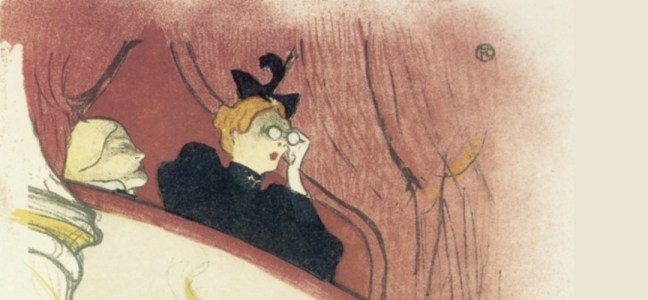
This is an opera by Antonio Vivaldi, created exactly 300 years ago in 1717. It is a typical baroque jewel: an absurd plot, lots of characters, beautiful music. The story is very loosely based on the historical events following the death of Cyrus the Great, with Darius ascending the throne. In the opera, Cyrus is survived by two daughters: dim-witted Statira, the eldest, and cunning Argene, both sung by altos. An Oracle declares that whoever marries Statira will inherit the empire, and three suitors enter the scene: Darius (tenor), who seems to be honestly in love with her, Arpago, the greatest general of the army, and Oronte, a sort of prime minister in charge of the administration of the empire. Arpago and Oronte are both sung by sopranos (the profusion of female voices gives a peculiar and interesting character to the opera).

Argene, painfully aware of her sister’s weak mind, plots and schemes to rob her of the throne. First she tries to seduce Darius, who seems completely unmoved by her graces. When this fails, she plots her sister’s murder, planning to inherit the throne, and reign with Oronte. All her plans fail, Statira survives the attempted murder, Argene is incarcerated, Darius marries Statira and is finally crowned, as the title of the opera suggests.
The music is absolutely gorgeous, with many beautiful arias, and the usual light heartedness that Vivaldi can express. The recitativi are intense, and the opera is a mixture of funny and tragic, extremely enjoyable.

Of course (why do I bother mentioning this?) the action is moved to present-day Persia, i.e. Iran, with Cyrus being some sort of sheik, Arpago a modern-day military man, and Oronte in charge of the oil wells. It was not disturbing, and that is all I have to say on the production. The acting, however, was very good, even funny at times. The director used the peculiarities of baroque opera in a clever way, making use of the typical “da capo” arias to provoke the frustration of the other characters, who get bored of Statira going on and on about trivial things (for example). Statira and Argene’s costumes were very flamboyant and beautiful. One funny idea in the production was that, as Oronte and Arpago were performed by women, also all the soldiers under Arpago’s command, and all the workers in Oronte’s squad were women. It was witty.

The conductor was Ottavio Dantone, who had a continuo made of period instruments, but the rest of the orchestra was on modern instruments. They did a fantastic job, but honestly, it is kind of annoying to hear modern violins in baroque music, these days. The effects they can manage (messa di voce, crescendo) sound out of place. But overall, the musical experience was extremely positive, and I really liked Dantone’s energy. Honorable mention to the bassoon, who did a great job in his solo during the aria Non lusinghi il core amante.
Dario was Carlo Allemano. His voice is not your typical baroque tenor voice, it is big and with a sizable vibrato, but I enjoyed his performance. He has the right style, a very good technique, and is a good actor.

Sara Mingardo was Statira, I really liked her a lot. Her alto is deep and very well set, with a powerful lower register, and good high notes. Her technique and style are near perfect, she truly is a fantastic performer of this repertoire. I also enjoyed her acting: Statira is really almost mentally deficient, and Mingardo manages to convey a lack of understanding of anything happening around her without turning her character into a joke. Her Statira has feelings and humanity, despite being dumb as a rock.
Statira’s sister, Argene, was Delphine Galou, a somewhat less powerful voice, but with an extremely beautiful timbre. Her coloratura was explosive in the last aria Ferri, ceppi, sangue, morte she was truly amazing. She has great charisma, she captures everybody’s gaze, when on stage, thanks also to her height and her beauty.

Lucia Cirillo performed Oronte with great confidence and came out as one of the strongest voices of the evening. I must hear her again. Veronica Cangemi, as Arpago, had good high notes, but her voice kind of disappeared in the central register, a bit disappointing. Alinda, Oronte’s old girlfriend, was Roberta Mameli, the most beautiful voice of the performance. Not the most characterized or charismatic, but the purest sound. Romina Tomasoni was a solid and funny servant, while Riccardo Novaro held his place as the philosopher Niceno.
I hadn’t been in the Teatro Regio, in Turin, in almost 10 years; it is a very beautiful venue. I was sitting next to a typical “lady from Turin”, with a thick accent, who complained because Dantone was conducting in his shirt, no jacket, no tie, nothing. “I mean, this is a premiere! At the Teatro Regio! Bah!”. I wish Currentzis went to conduct something there, she’d faint.

I saw your post but I didn’t want to say anything until I saw it myself. Really hilarious! Even with the modern instruments, Dantone’s conducting accomplished a lot. Also, I love the theatre. One of the most stylish I have seen so far.
LikeLiked by 2 people
I agree, Dantone did a great job, and yes, the theatre is really beautiful. I’m glad you enjoyed it!
LikeLiked by 2 people
I didn’t know the story at all, so it was really helpful to read your synopsis/view before my first live experience. I think only then that i was able to see more how each character fits / makes sense and dug deeper into their 3-d versus 1-d (allowable) portrayal. It turned out such a comique we really had a great time going along with it.
LikeLiked by 1 person